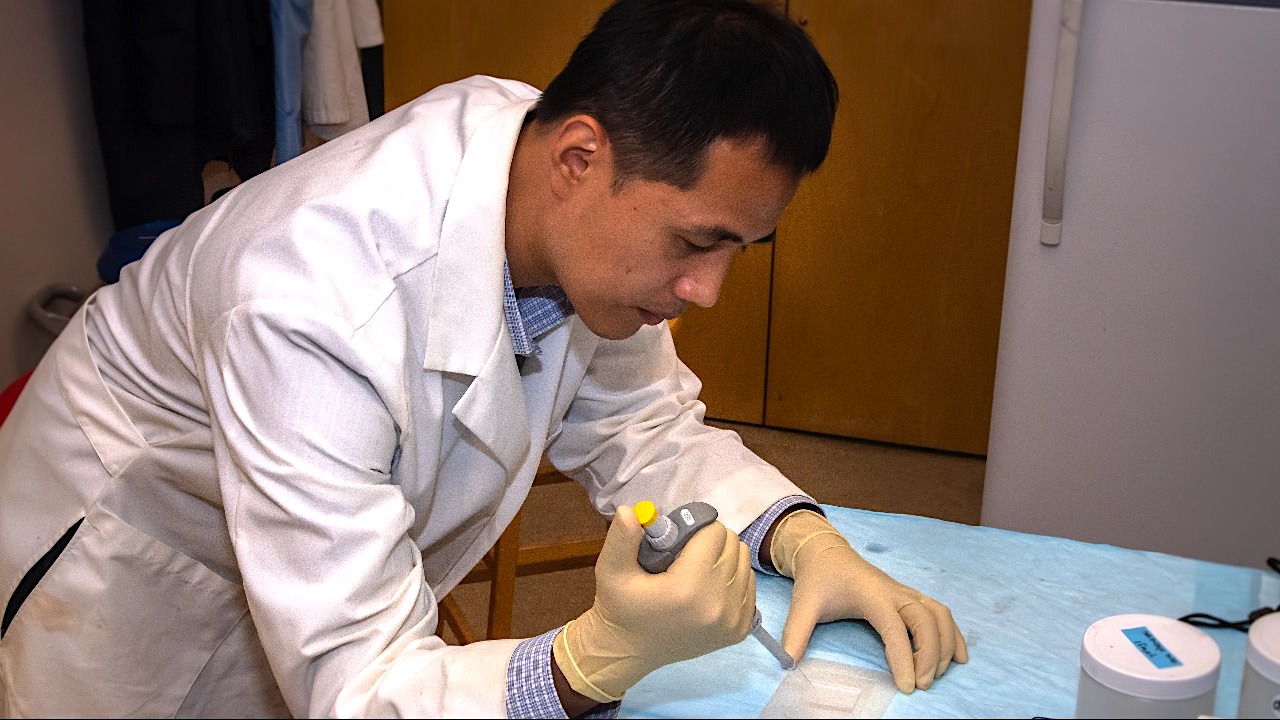NSF highlights Auburn’s leading research in biomedical sensor technology
Published: Jul 24, 2025 1:00 PM
By Jeremy Henderson
Five years ago, Pengyu Chen, now the Francis Family Associate Professor and Ginn Faculty Achievement Fellow in the Department of Materials Engineering, received a prestigious National Science Foundation CAREER Award, a $500,000 early career grant recognizing outstanding potential in research and education.
The confidence was well-placed.
Thanks to the NSF's foundational support, and significant subsequent funding from the National Institutes of Health (NIH), Chen's reputation as a leading authority in nanosensor technology for precision medicine looms larger than ever.
By harnessing nanoplasmonic materials—tiny, light-sensitive metal structures useful in a wide range of advanced applications — Chen's research group is developing cutting-edge diagnostic tools, such as AI-enhanced immune profiling and single-cell secretion mapping that are demonstrating real-world impact in rapid, precise immunodiagnostics.
They're also reminding the NSF of why Chen caught their attention in the first place.
In its Science Matters series, the organization recently highlighted Chen's research on sensors that can quickly and accurately detect several immune system signals at once in a single drop of blood as an emerging NSF-funded biomedical sensor technology.
The results of that research were published in ACS Applied Materials & Interfaces in October 2023. A year later, Chen received a $1.9 million extension of a 2019 NIH Maximizing Investigators’ Research Award for the same amount, which at the time was the Samuel Ginn College of Engineering's largest-ever NIH grant.
"It's obviously an honor to again be recognized by the NSF, which helped our group begin fundamental advances in nanoplasmonic materials," Chen said. "It's exciting to see those discoveries now driving the development of integrated, real-world tools for rapid immune monitoring. We’re working to translate these innovations into practical platforms that can support personalized immunotherapy decisions in clinical and point-of-care settings."



